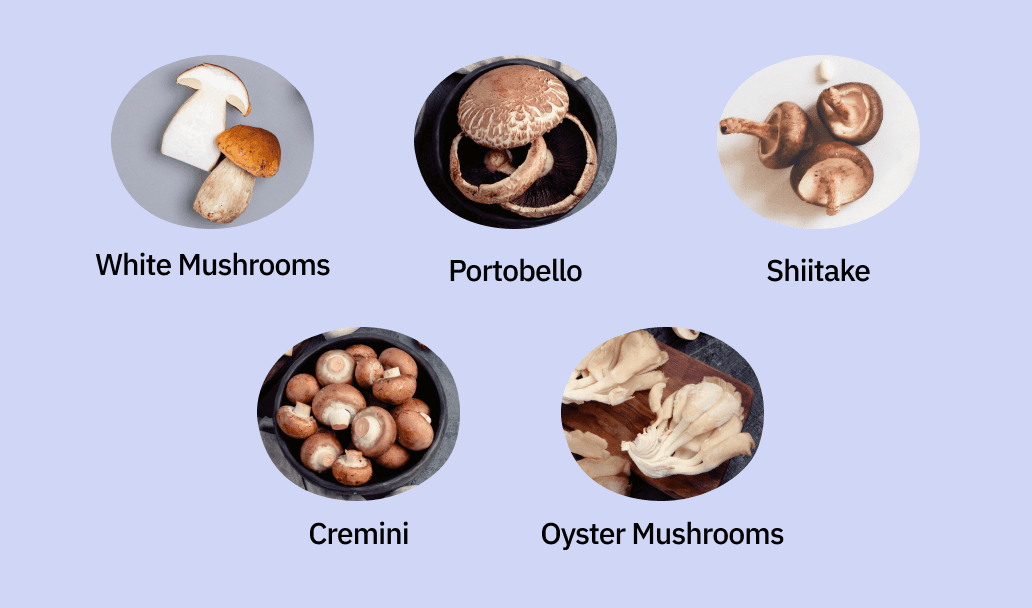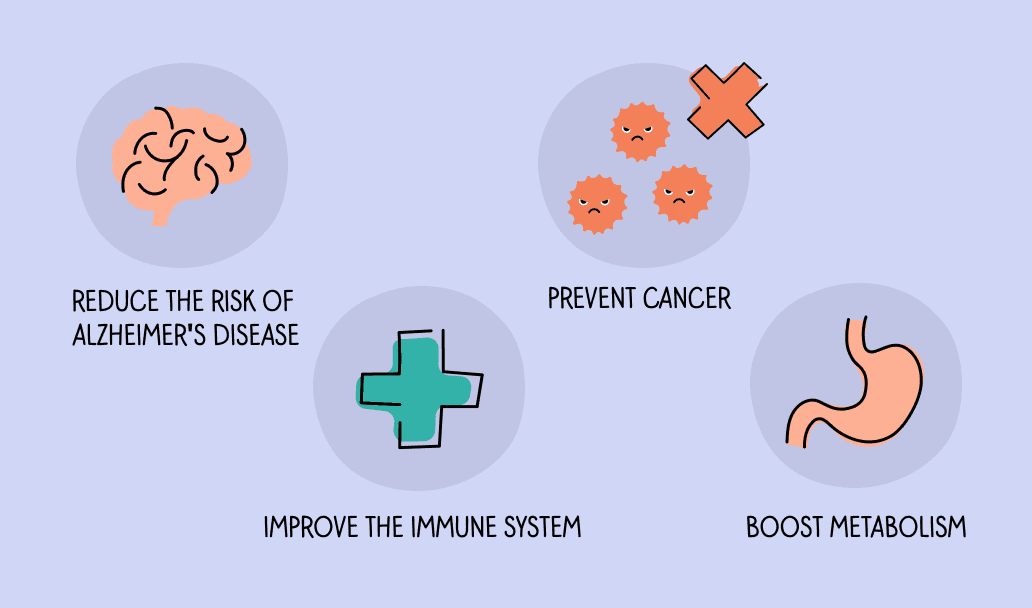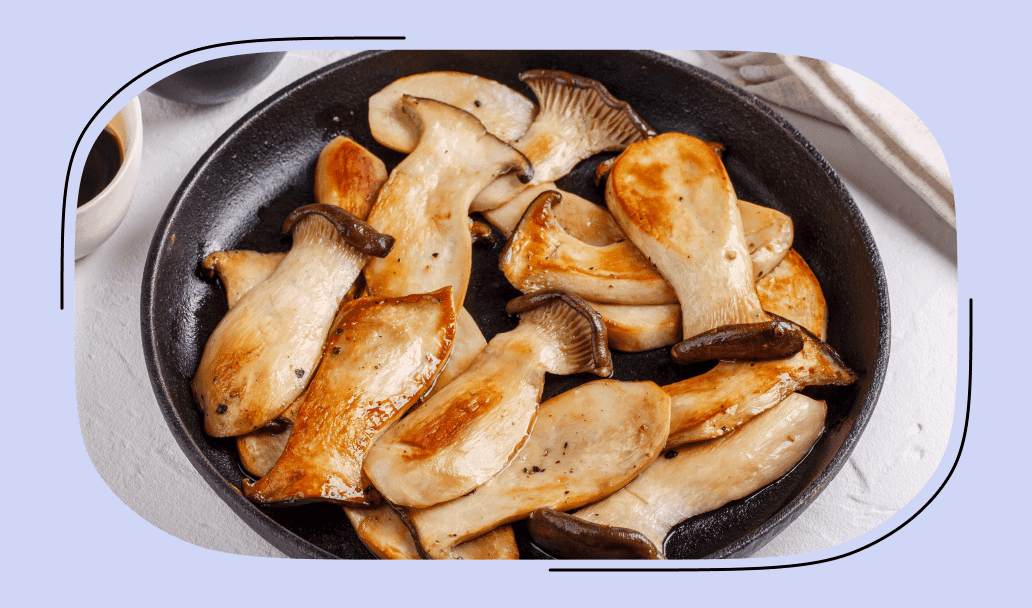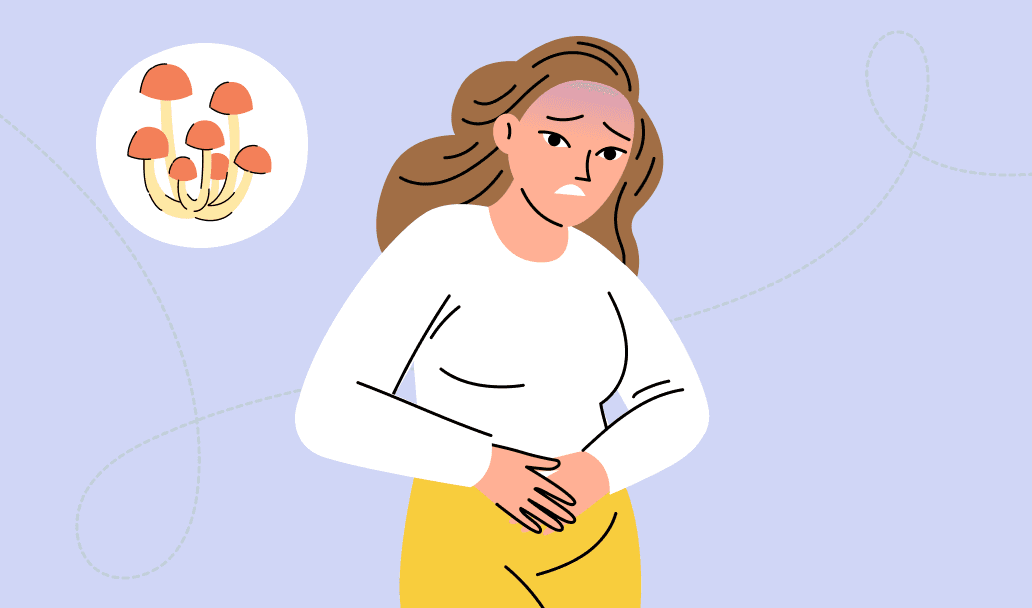Big or small, organic or wild, rare or regular, healthy or toxic - there is a large selection of mushrooms worldwide. But if we are talking about edible mushrooms, they can provide significant health benefits.
Mushrooms contain protein, iron, magnesium, phosphorus, selenium and Vitamins C and B. This set has different health benefits for your body. The exact nutritional value can be a little bit different, it depends on the mushroom's type, but in general, all mushrooms are very similar in their compositions. For example, nutrients for raw white mushrooms per 100 g:
Eat tasty food and lose weight with Unimeal app!
Take a Quiz – Get personal meal plan – Achieve your weight goals!
Start QuizEnergy: 22 kcal
Protein: 3.09 g
Fat: 0.34 g
Carbohydrates: 3.26 g
Fiber: 1 g
Sugars: 1.98 g
Mushrooms can be combined with vegetables, groats, meat or they can even replace it.

Even professionals sometimes make mistakes when picking mushrooms in the forests. To be sure that mushrooms are edible and not toxic, buy them in grocery stores or in supermarkets. Here is the list of the most common and healthiest mushrooms:
white mushrooms;
portobello;
shiitake;
cremini;
oyster.
Mushrooms have a significant protective role because they contain ergothioneine, amino acid, and antioxidants that prevent or slow cellular damage. The consumption of mushrooms decreases the risk of cancer, particularly breast cancer. A 2021 review found that eating just 18 grams of mushrooms (or just two medium mushrooms) a day may lower your risk of cancer by as much as 45%1Djibril M Ba, Paddy Ssentongo, Robert B Beelman, Joshua Muscat, Xiang Gao, John P Richie, Jr. 16 March 2021. Higher Mushroom Consumption Is Associated with Lower Risk of Cancer: A Systematic Review and Meta-Analysis of Observational Studies. Advances in Nutrition. DOI:10.1093/advances/nmab015.
Mushrooms have immunomodulating effects. It means they help your body to keep the immune system in balance and help to fight against harmful bacteria and microbes. Eating mushrooms makes you less susceptible to diseases, and you get sick less often.

The bioactive compounds of mushrooms delay neurodegeneration and lower the risk of developing some serious health diseases like Alzheimer. Singapore research participants who consumed more than two cups of mushrooms a week had a 50% lower risk of developing mild cognitive impairment, which causes memory and language difficulties. The examinees ate white mushrooms, shiitake, and oyster mushrooms2Feng, Lei et al. 12 March 2019. The Association Between Mushroom Consumption and Mild Cognitive Impairment: A Community-Based Cross-Sectional Study in Singapore Journal of Alzheimer's Disease. DOI:10.3233/JAD-180959.
Mushrooms are fewer calories than meat, but they can also satisfy hunger. For example, there are only 22 calories in 100 g of white mushrooms. Loaded with zinc and B vitamins, mushrooms boost metabolism and promote stomach work3Poddar, K. H., Feeney, M. J., & Cheskin, L. J. February 2012. Edible mushrooms: Potential role in weight regulation. Nova Science Publishers, Inc. Retrieved from https://jhu.pure.elsevier.com/en/publications/edible-mushrooms-potential-role-in-weight-regulation-4. As a regulator of glucose, mushrooms burn fat in the body and can help you to lose weight faster.
Forget about the frying pan if you want to keep all the healthy mushroom ingredients. The best way to cook portobello, shiitake, cremini, oyster, or white mushrooms is to use a grill or a microwave. According to the research published in the International Journal of Food Sciences, fried and boiled mushrooms lose proteins and have significantly less antioxidant activity4Irene Roncero-Ramos, Mónica Mendiola-Lanao, Margarita Pérez-Clavijo, Cristina Delgado-Andrade. 19 May 2017. Effect of different cooking methods on nutritional value and antioxidant activity of cultivated mushrooms. International Journal of Food Sciences and Nutrition. DOI:10.1080/09637486.2016.1244662.

Grilling or microwaving mushrooms increases the content of polyphenols and antioxidants, which protect your cells against free radicals and decrease the risk of differ.

Be careful and attentive when choosing mushrooms, because even in the store, you can buy bad and dangerous ones. Here are signs of spoiled mushrooms:
the mushroom's flesh is floppy;
the mushroom smells unpleasantly like mold;
the cap and stalk are slick with slime.

You might feel side effects of mushrooms if you have an allergy. In this case, don't experiment; consult your doctor before adding a new type of mushroom to your menu.
Unimeal does not diagnose or suggest treatments. Any description of the diet, training plan or supplement should be discussed with your current physician or nutritionist. This article does not address specific conditions and is simply meant to provide general information on healthcare topics. Following any advice is at your own initiative and does not impose any responsibility on the blog authors for your health and safety.
Sources:
By choosing high-quality sources, we make sure that all articles on the Unimeal blog are reliable and trustworthy. Learn more about our editorial processes.
1.
2.
3.
4.
Related Articles